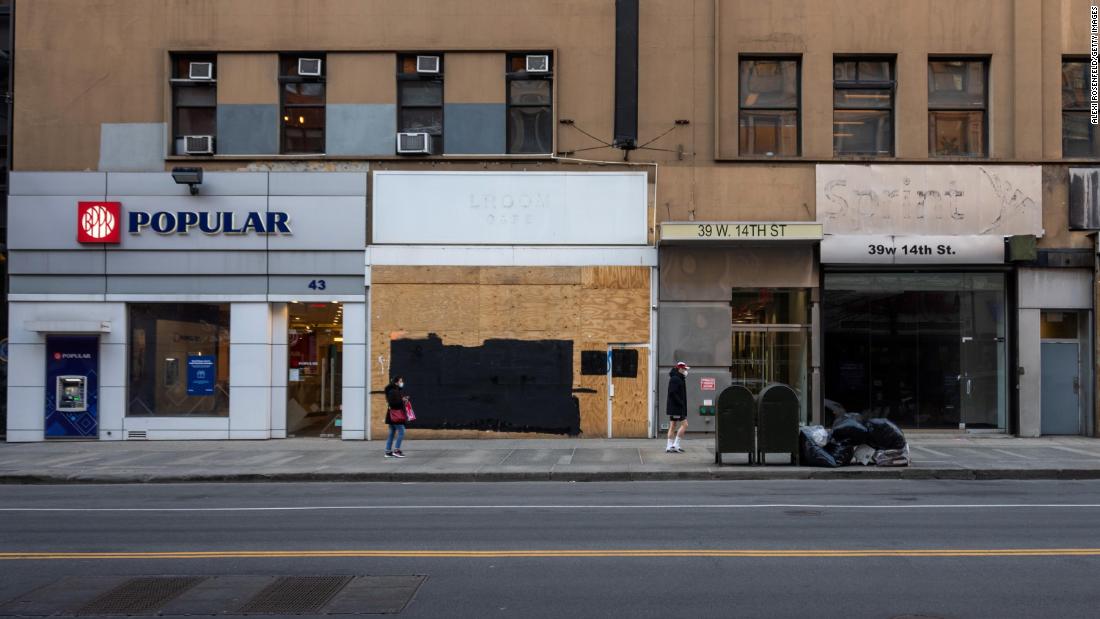With about 40% of the funds allocated by Congress in December remaining, lawmakers approved another $ 7 billion for the fund in Covid’s $ 1.9 trillion relief bill that was sanctioned last week. But the additional funds are of little use if the March 31 deadline is not postponed.
There is bipartisan support for legislation that would extend the program until May 31 and would provide an additional 30 days for the Small Business Administration to process applications that are still pending. A House bill could be voted on Tuesday night, but the Senate has yet to pass a complementary law.
There are several reasons why so much money remains. Demand has slowed as the economy slowly recovered, but creditors say a new fraud detection process has left thousands of apps in limbo for weeks. In addition, exclusivity windows have prevented some larger companies from signing up during certain periods during the eight weeks the program has been open since the beginning of this year.
Rule changes
Congress has made changes to help ensure that the most affected companies have access to cash, rather than the chain stores and restaurants that quickly obtained large loans when the program opened last year.
When lawmakers reopened access to the program in December, billions of dollars were channeled to community-based financial institutions, which typically lend to minority-owned companies in underserved communities, and to companies with less than 10 employees.
The Biden government made even more sudden changes in February. Three days in advance, it allowed small businesses with fewer than 20 employees to have an exclusive two-week window to apply for funding, blocking larger employers during that time. It also expanded eligibility. Freelancers, individual owners and independent contractors can now qualify for more money, as well as business owners with non-fraud related crimes, those who are in default on their federal student loans and some noncitizen residents.
But in a way, changes to the second round of loans have also made eligibility more restrictive. Companies are expected to show a drop of at least 25% in gross revenue in the first, second or third quarters of this year compared to the same quarter of 2019. Excluding those that employ more than 300 workers.
There are still problems with error messages and holds and it is difficult to get a call or email back, according to Hilda Kennedy, who spoke at a House hearing last week on behalf of the National Association of Development Companies, a group commercial representative of small business creditors.
Who was helped
Last year, the program approved 7.6 million loans worth more than $ 687 billion between April and August. Since the reopening in January for new applicants and for second loans, about 2.4 million loans have been made, totaling almost $ 165 billion, as of March 7.
Loans are forgiven if the company spends at least 60% of the money on payroll expenses – although business owners have to apply for cancellation. Nearly 3 million have yet to submit a request for forgiveness.
Companies are still struggling
Small business advocates and creditors say the program is providing vital aid to companies in distress and urge Congress to extend the deadline. The number of small businesses open in the United States has still dropped 32% since January 2020, according to Opportunity Insights, a Harvard-based research group that tracks the recovery.
“The current timeline for accessing the PPP program is very truncated and makes no sense given the state of economic recovery,” wrote the National Federation of Independent Companies in a letter to lawmakers.
The group noted that several small businesses still assess their needs in the light of changing circumstances. Some business owners say the loans served only as a remedy for what has now become a year-long pandemic. Each loan is only intended to cover expenses for a few months.
CNN’s Jeanne Sahadi contributed reporting.
.Source
Related
